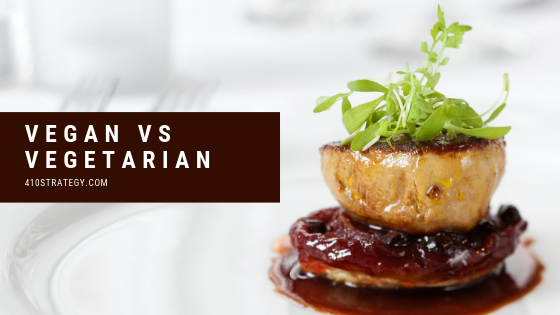VEGAN VS VEGETARIAN – WHAT YOU NEED TO KNOW

While both might seem to be similarly oriented, or the other seems like a variant or a subclass of the other, both are quite different in their philosophy. Individuals who partake in one may not like to be referred to, as the other. This is mostly true for vegans as most don’t want to be referred to as vegetarians.
Lots of subcategories have sprung up under vegetarianism which might make it a little hard for one to keep up with the differences and names. Veganism, on the other hand, has mostly remained what it is.
Briefly, we will explain what makes one a vegetarian or a vegan.
Where Is The Line Drawn Between Both Concepts?
One major difference between veganism and vegetarianism is highlighted by two words – diet and lifestyle. One is described as a vegetarian based on the type of non-meat diets they have accustomed themselves to, probably due to health reasons, choice, religion or some other inclinations. While veganism is a lifestyle that decries the abuse of farmed animals or animal rights in general.
Hence, while a vegetarian focuses on eating meals that comprise of fruits, vegetables, nuts, and grains; a little bit of dairy products, honey and eggs may be added in some cases.
A vegan abhors the consumption of any meal or product that has been sourced from animals or through the use of animals. Their meals strictly consist of vegetables, grains, nuts, and fruits. They avoid the purchase of or use of animal-based products like leather, fur, wool, or cosmetics that have been tested on animals.
Who Is A Vegetarian?
Vegetarianism as a term is inclusive, accommodating some other terms in its broad definition. Therefore, there are different types of vegetarians, which include:
- Ovo vegetarians: these are vegetarians that exclude all other animal products from their meals, except eggs.
- Lacto vegetarians: these are vegetarians that consume dairy products while excluding eggs and meat.
- Lacto-ovo vegetarians: these are vegetarians that do consume dairy products and eggs, but abhors animal flesh.
- Flexitarians: also referred to as semi-vegetarians; who are slowly cutting back on their consumption of meat. Though they still eat meat at will.
- Pescatarians: also referred to as demi-vegetarians. They exclude meat from their diet, but will eat fish, eggs and dairy products.
The Vegans
The philosophy that steers veganism is more aptly described by “animal empathy.” Vegans believe in the independence of animals, therefore posing a sort of advocacy for the freedom of animals. In most cases, stating that animals are subjected to unnecessary torture and denial, during their use for the provision of milk, meat, honey and other animal-based products.
Veganism is vegetarianism at the extreme. It is not uncommon to notice that vegans are not entirely in approval of what might be considered as a lack of utter advocacy for farmed animals and against animal cruelty by vegetarians.
Vegans are speculated to be of two types
- Raw vegans – are individuals who have found a middle ground between veganism and “raw foodism.” Hence, such adherents go by the principles of veganism, but won’t consume meals prepared at temperatures above 1180F (480C).
- Paleo vegan – Sounds weird, right? But it is a thing! Paleo vegans are those who have chosen the Paleolithic path while avoiding all the animal flesh and animal-based products involved in it. In essence, they also avoid grains, sugar, and processed foods.
Leave a comment
Comments will be approved before showing up.
Also in Blog

Personalized Fitness Training: Why It’s the Future of Health and Wellness
Personalized fitness training tailors every workout to your goals and lifestyle, ensuring sustainable progress and real results.

Top Reasons to Try Interval Training in Bootcamp Classes
Interval training in bootcamp classes at NXT Level Fitness helps you burn calories, build strength, and stay motivated.


